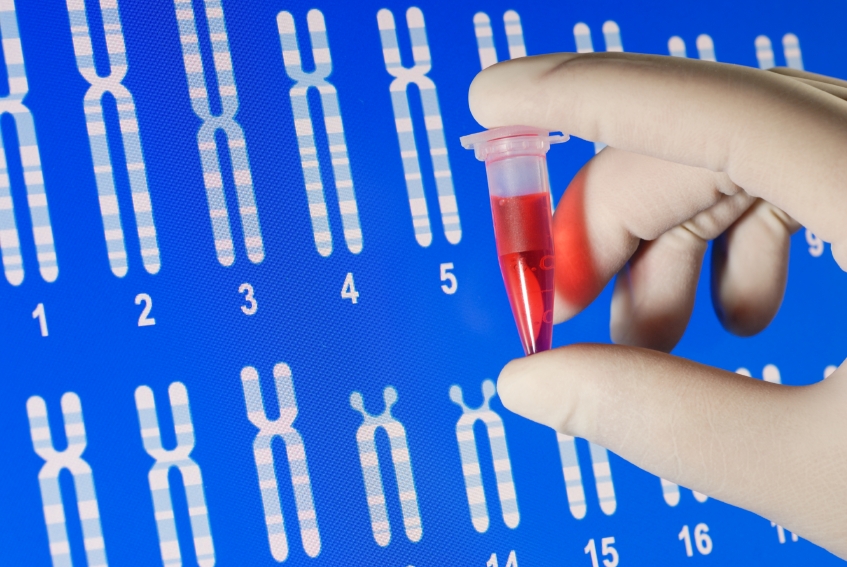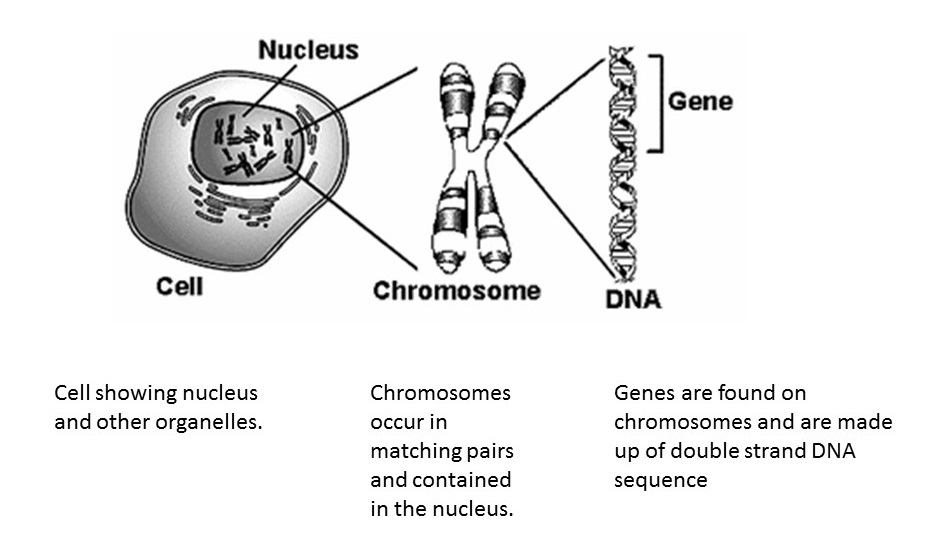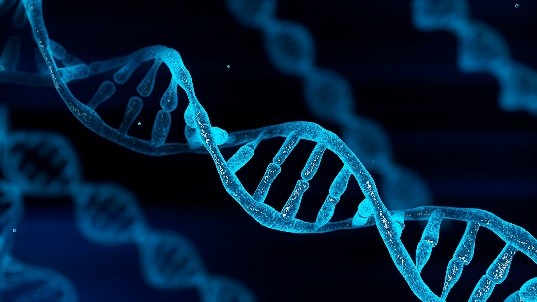
By: Dr. Gbemisola Daramola, Principal Medical Officer, University Health Service, University of Ibadan, Ibadan, Nigeria and DHLA Volunteer Writer, with contribution from the DHLA Team.
Genotype (or genetic) testing is a laboratory-based process used to determine the differences in genetic makeup of an individual. There are many reasons why it is needed.
Regardless of gender and sexual orientation, at some point in life you may decide to hook up with a partner, start having children or a raise a family. As an African you may have diverse concerns about the process of finding the ‘right partner’ to hook up with. To find the right partner, you and your support network will most likely examine prospects through these lens.
i. Sociocultural and Religious: Ethnicity, cultural and religious congruency
ii. Physical and Psycho-behavioural: appearance, carriage, beauty, likability and other psycho-behavioral attributes etc.
iii. Financial: Education, Job and wealth potential, etc.
iv. Biological: Medical, mental and genetic status etc.
Without intending to diminish the importance of the numerous parameters of your prospect evaluation, this article will focus squarely on the importance of genetic evaluation.
Why, you ask?
Well, if you are contemplating marriage and raising a family anytime soon, it is in your best interest for you and your prospective partner to undergo premarital counseling and genetic testing so that you can prevent the possibility of having children with hereditary or genetic disorders. One of such and indeed the most common genetic disorder in Africa is Sickle Cell Disease (SCD).
Genetic testing, otherwise also referred to as Genotyping is a basic tool that is used in determining the possibility of having a child with say SCD or any other hereditary disorders.
So, here are what you can expect to learn from this report:
Genes are the basic unit of heredity passed from parents to children. Genes carry information that determine the traits/ characteristics of individuals passed from parents to children. Some health conditions and diseases can be passed on through genes too.
You are made of billions of cells. Cells are made of a nucleus which acts as the brain of the cell. Within the nucleus are spaghetti -like structures called chromosomes. Chromosomes occur in matching sets of two (pairs). A cell nucleus contains 46 individual sets of chromosomes or 23 pairs of chromosomes. Half of the chromosomes come from each parent. Genes are found on chromosomes.

Illustration showing Cell- Nucleus-Chromosome-Gene-DNA relationships.
Your body has 25,000-30,000 genes. Genes are also found in both plants and animals. Genes are made up of sequences of DNA and are arranged, one after another, at specific locations on chromosomes in the nucleus of cells. DNA or deoxyribonucleic acid is the hereditary material that carries the genetic information/ instruction from parents to children. Genes also come in pairs like chromosomes. Each parent has 2 copies of their genes and it is only one copy each parent pass to each child. These genes determine the colour of hair, height etc.

Illustration of DNA double helix strand.
Genotype is the genetic makeup of an organism, the sum total of genes transferred from parents to children. While genotype testing is a laboratory -based process used to determine the differences in genetic make -up of an individual. This is achieved by examining your DNA sequence and comparing it to another individual s or a reference sequence.
There are many reasons why you or other people may require genotype/ genetic testing. It can be done at different stages of life depending on the information required. Some are listed below:
Before a child is formed: Embryos formed using the assisted reproductive method like in-vitro fertilization (IVF) are tested before implantation into the womb to reduce the risk of having a child with genetic or chromosomal disorder.
Before the birth of a child: It can be done during pregnancy when there is increased risk for genetic or chromosomal disorder
Newborn: It can be used to determine genetic disorders in newborn that can be treated early in life.
Carrier testing: When there is a family history of a genetic disorder or an increased risk in an ethnic group, the carrier status of both parents can be determined. A parent who carries a copy of the genetic mutation will confer a carrier status on the child while both parents will confer a genetic mutation.
Diagnostic: Can be done before birth or anytime in life to confirm the diagnosis of a genetic disorder when suspected in a person with signs and symptoms of the disorder.
Forensic: This is to determine crime suspects and relationships between people like paternity.
Before Marriage: It is very important you do a genotype testing before choosing a life partner. This is to prevent hereditary disease risks that could arise and cause life- long devastating consequences to the concerned family.
For example, individuals with abnormal sickle hemoglobin (the substance in red blood cells that helps carry oxygen) have genotype S. When an individual inherits the hemoglobin genotype S from both parents; SS he/she is said to have the sickle cell disease. If it is inherited from only one parent, he/ she is said to have the sickle cell trait. Some individuals have a milder type of sickle cell disease with the hemoglobin genotype C. However, they also have complications.
So, for purposes of informed prevention of having a child with sickle cell disease (SCD), it is worthy to be aware that:
AA can marry anybody
AS and AA: No risk of SCD. Can marry
AA and SS: No risk of SCD. Can marry
AS and AS: Risk of SCD. Marriage not recommended
AS and AC: Risk of SCD. Marriage not recommended
SS and SS: Risk of SCD. Marriage not recommended
.jpeg)
Hemoglobin Genotype Chart for Intending Couples. Credit: Osun Defender
It is a genetic blood disorder affecting red blood cells.
The sickle hemoglobin, HbS is structurally different from the normal hemoglobin, HbA.
Individuals with HbS experience severe pains in different parts of the body due to reduced oxygen flow in the blood vessels.
%20in%20children%20with%20SCD.png)
Collage of Hand and Foot Syndrome (Dactylitis) - the firt sign of Sickle Cell Disease (SCD) in babies.
Credit: Smile Sickle Cell Foundation
SCD is a global disease that is causing significant public health problem mainly in sub- Saharan Africa. It affects 20-25 million people globally.
About 240,000 children are born yearly in sub- Saharan Africa with SCD. Of these 50-80% die before the age of 5 years.
The World Health Organization (WHO) in 2006 identified different genetic screening tests that could be used to effectively end sickle cell disease particularly in Africa as follows:
Premarital screening involving genotype testing before marriage is also highly recommended.
Genotype testing is usually recommended by a medical practitioner.
It could also be requested
Genotype testing can be done in reputable laboratories with a track record of accurate results. It can also be done in health facilities that have the skilled personnel, equipment and reagents for the test.
Talk with your doctor or health care provider if you want to do a genotype testing.
You will be guided on how to get the test done.
The steps taken in the performance of genotype testing include:
Other samples that can be collected and used include saliva, hair, skin, amniotic fluid (i.e. the fluid or water that surrounds the fetus in the womb during pregnancy) and other body tissue and fluids.
1. It provides relief in uncertainties.
2. It guides informed partner selection when deciding on a life partner.
3. It helps to make informed decisions medical and lifestyle decisions.
4. It helps people to know their cancer risk.
5. It provides an opportunity to educate family members on potential health risks.
1. May cause emotional and mental stress.
2. Sometimes the results are inconclusive.
3. Results may impact family and friends negatively.
4. May provide limited information about an inherited -conditions.
5. Discrimination of those labeled to have "inferior genes".
The cost of genotype test depends on the type and the purpose. It is also determined by number of tests to be done and the number of people to be tested. The cost of haemoglobin genotype test in Nigeria depends on the facility and ranges from N1,000 to N5,000 (equivalent 0f USD $2.2 to $11.00 at official exchange rate of N460 = USD $1.00 as at date of publication).
1. Lack of awareness and importance of genotype testing.
2. Fear and anxiety of the result and some want to live in denial of being at risk.
3. Accessibility and high costs of genotype testing in some places.
4. Social stigma is sometimes associated with genetic disease.
5. Family pressure on women to give birth to healthy children and they are then blamed for those with genetic disease.
6. Where arranged marriages are common, women with carrier status have few prospects. Where consanguinity is common, family members control marriage decisions.
7. Some religions do not permit the termination of pregnancies so individuals are hesitant to carry out genotype testing.
8. Some believe that genetic diseases are results of sin or punishment by God.
The development of genetic services started in the 1950s. It was introduced to South Africa in the early 1960s and Nigeria in the 1970s. Despite the presence of genetic services in Nigeria for about 50 years children are still been born daily with preventable genetic diseases particularly sickle cell disease. There is an urgent need for more people to understand why they need to know about genotype testing and get it done so we can eradicate sickle cell disease and put an end to the painful mystery many children go through which causes untold emotional and financial stress to families and the society at large.
For starters, if you are contemplating marriage, know your hemoglobin genotype status. Get a test done now!
References
Abioye-Kuteyi, E.A., Oyegbade O., Bello, I., Osakwe, C.: Sickle cell knowledge, premarital screening and marital decisions among local government workers in Ile-Ife, Nigeria. Afr J Prim Health Care Fam Med. 2009 Jun 23;1(1):022. doi: 10.4102/phcfm.v1i1.22.
Adeyemo, A.A., Amodu, O.K., Ekure, E.E., Omotade, O.O.: Medical genetics and genomic medicine in Nigeria. Mol Genet Genomic Med. 2018 May;6(3):314-321. doi: 10.1002/mgg3.419. Epub 2018 Jun 5. PMID: 29871027; PMCID: PMC6014475.
Zhong, A., Darren, B., Loiseau, B., He, L.B., Chang, T., Hill, J., Dimaras, H.: Ethical, social, and cultural issues related to clinical genetic testing and counseling in low- and middle-income countries: a systematic review.
Genetics in Medicine, Volume 23, Issue 12,2021, Pages 2270-2280,
Aygun B, Odame I. A global perspective on sickle cell disease. Pediatric Blood Cancer. 2012 Aug; 59(2):386-90. doi: 10.1002/pbc.24175. Abstract. Subscription needed for full access.
Kromberg JG, Sizer EB, Christianson AL. Genetic services and testing in South Africa. J Community Genet. 2013 Jul; 4(3):413-23. doi: 10.1007/s12687-012-0101-5. Epub 2012 Jun 19. PMID: 22711384; PMCID: PMC3739847.
Mulumba, L.L. and Wilson, L.: Sickle cell disease among children in Africa: An integrative literature review and global recommendations. International Journal of Africa Nursing Sciences. Volume 3, 2015, Pages 56-64,
World Health Organization (2006). Management of birth defects and haemoglobin disorders: Report of a joint WHO-March of Dimes meeting, Geneva, Switzerland, 17–19 May 2006.
Published: February 21, 2023
©2023. Datelinehealth Africa Inc. All rights reserved
Permission is given to copy, use and share content freely subject to attribution as to source.
DATELINEHEALTH AFRICA INC., is a digital publisher for informational and educational purposes and does not offer personal medical care and advice. If you have a medical problem needing routine or emergency attention, call your doctor or local emergency services immediately, or visit the nearest emergency room or the nearest hospital. You should consult your professional healthcare provider before starting any nutrition, diet, exercise, fitness, medical or wellness program mentioned or referenced in the DatelinehealthAfrica website. Click here for more disclaimer notice.